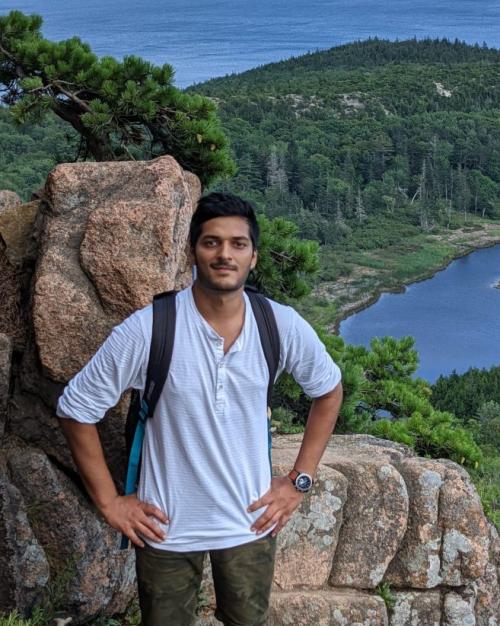Vaibhav Sharma is a doctoral candidate in physics from Delhi, India. He attended Delhi Technological University for his bachelor’s degree and the Indian Institute of Technology Bombay for his master’s degree and now studies the quantum mechanical behavior of ultracold atoms.
What is your area of research and why is it important?
My research focuses on trying to understand the quantum mechanical behavior of ultracold atoms. When atoms are cooled down to temperatures that are a million times colder than outer space, they start behaving more like waves instead of particles. Such ultracold matter is governed by the laws of quantum mechanics as opposed to the classical Newton’s laws of motion. These quantum systems harbor many novel phases of matter and mysterious phenomena that we don’t yet fully understand. I do mathematical calculations to understand and explain the behavior of these systems.
What are the larger implications of this research and what is its impact?
Quantum mechanics is at the forefront in a lot of unsolved mysteries in our universe, from the interior of neutron stars to the mechanism behind high temperature superconductors. Ultracold atoms can mimic some of the vital features of such systems and by understanding these ultracold atomic systems, we can shed light on some of these mysteries. At the other end, understanding the quantum behavior of such systems can make us capable of controlling and harnessing the power of quantum mechanics for our own use. For instance, in designing a fault-tolerant quantum computer.
You were named second place winner in the 2022 Three Minute Thesis (3MT) competition. Can you describe the process of condensing your research into a three-minute presentation?
It was extremely challenging at the beginning. I was trying to put everything that I had done so far in a three minute presentation. The key moment was when I realized that I don’t have to put all parts of my research in it. I focused on a particular aspect of my research which I found most interesting and then started building a short three minute story around it. Everything then flowed into place and I found out that three minutes is in fact enough time for introduction, background, results, and conclusion!
How will you take what you’ve learned from participating in the 3MT and use it in future academic and professional contexts?
I have learned how I can be less verbose and more concise. I would implement these lessons in the papers I write and conference presentations. A three minute presentation made me see how much space and time we can waste on ‘filled’ words or sentences that don’t really add much to the broader point. I can be more precise now in my talks.
What are your hobbies or interests outside of your research or scholarship?
I love playing and watching sports, especially tennis, cricket, and badminton. I also love to travel and I am always chasing landscapes I have never experienced before. I am currently learning how to speak Spanish well.
Why did you choose Cornell to pursue your degree?
Cornell has a very strong physics department excelling in both theoretical and experimental physics in a wide variety of research areas. I talked to a couple Cornell graduate alumni and they vouched for the beauty of Ithaca and the amazing culture of Cornell where your ideas are encouraged and you have a safe space of learning and discovery. Luckily I got admitted and then it was an easy choice.
Read the story on the Cornell University Graduate School website.




